Has travel lost its magic? What happened to discovery and kismet and awe? Are there no surprises left?
I strolled down Peace Avenue, the main thoroughfare, in Ulaan Batar, it was cool yet sunny. My black Columbia jacket was zipped up to my chin. One eye rested on Google Maps on my iPhone, the other on the oncoming pedestrians. I had purchased a local Mongolian SIM card and was gobbling up data on the local network. My hunger grew, and I spied a restaurant. I inputted the name of the restaurant in TripAdvisor, and decided to pass. Other travelers had only provided a 3 star rating to the Italian restaurant. I decided I had a taste for Mexican. I Googled Mexican restaurants in UB and found my mark. I waived down a taxi and directed the older driver in Russian to my destination. This was courtesy of Google Translate (Mongolian is not available yet). While on route, I Skyped my Dad in Boston to say hi, and followed up by Face Timing my god-daughter also in Boston. She beamed. She quickly compiled a gift list, which I promised to DHL her. As I munched on some quesadillas my phone chimed. It was Narantsetseg, we had met on Couchsurfing.com, and we planned to meet later that evening at my hostel. I had chosen Zaya Guest House, a cozy and clean option in the city center. I had compared and read reviews of different accommodation on Hostel World.
The land of Genghis Khan. Alien terra firma nestled between a fading and bitter super power, Russia, and juggernaut China. Populating my mind were visions of horses galloping across the steppes, Buddhist monks chanting in isolated monasteries, and felt-wrapped gers dotting the open-sky horizon. Exotic and mysterious. Isolated and wild. Yet, was that really the case?
I began my extensive travels in 2004. And since then I have traipsed through 85 countries on 7 different continents. While there were many modern conveniences ten years ago, I have noted the world has shrunk considerably through globalization and the internet. There is nothing inherently evil in regard to the consistency of a uniform universal culture, but it detracts from the mystery and discovery of travel.
Yes, after eating one too many dumplings, I salivated for a chicken wing. And what could be more comforting then the local Hooters in Beijing (I was heading to North Korea next and needed to Amercanize myself). I ambled to my seat at the bar to a chorus of “welcomes!” in English by girls clad in too recognizable orange shorts. Behind the bar, “Cindy” in an American accent took my order for dinner and a drink. As she hummed Robin Thicke’s “Blurred Lines”, I inquired how she learned her English. Her response. Prison Break. CSI: Miami. Dexter. I laughed to myself as we discussed the plot twists of the final season of Dexter. After traveling for three months, this was a comforting oasis.
My head snapped back, a double take. I was strolling through Heroes’ Square in Budapest. A young Hungarian skateboarder twirled around me on his board. I stopped him and clicked a picture of him. He was wearing a Boston Celtics style Dropkick Murphy’s tank top. He shared with me that they were one of his favorite bands. When traveling, I am sometimes struck with logo envy, when I see a tuk tuk driver in Thailand wearing matching sweats and tank top of my favorite NFL team. And I might let out a scream if I see another person donning a NY Yankees cap. Too global, too small of a world?
Every year the challenge grows to discover the road less traveled.
Not so long ago, you would find a couple of bandana-wearing, backpackers huddled around a scruffy Lonely Planet. Several local beers would garnish the table nestled next to a handful of blank post cards. They had just consulted the local travel agent at the hostel they were staying at in regard to plane tickets. Would this happen today? Less likely. Lonely Planet might be used, but for Thorn Tree Travel, their user generated section of their website, or maybe Trip Advisor, or maybe the open sourced WikiTravel. All online and all free. And why would you send a post card? Upload your photos to FaceBook, Instagram, or Twitter. Family and friends can see your photos immediately anywhere around the world. And why visit a travel agent to buy an airplane ticket why you can buy instantly over Kayak or Skyscanner.
Today, things are just easier. Maybe too easy. I really wonder; how did travelers previously handle their financial situation. There are few places (I am thinking Somaliland and North Korea) I have traveled to where I did not have access to an ATM. ATMs provide quick and easy access to cash around the globe. And with online banking, everything becomes even more straightforward. You need pay your mortgage or health insurance, just set up a monthly bill pay. It is done automatically.
I want to be wowed. But unless you have blinders on, it grows more difficult every day. On a quick trip to Abu Dhabi I consulted “Things To Do” on TripAdvisor. Firmly planted first on the list is Sheikh Zayed Grand Mosque Center. Over 5000 reviews have been written on this magnificent landmark. Do I dare look at photos on Flickr or maybe watch a video on YouTube? How can a traveler be surprised with such a wealth of information available to everyone? Another example is the App called Trover which lowers your opportunities for serendipity. As Trover activates, it will list with photos all relevant landmarks driven by GPS coordinates. Your map will guide you directly to the picture on your App. With technology like this will travelers walk down the wrong alley in error and discover that magical shrine or that delicious local food stall?
A Sunglass Hut is a Sunglass Hut is a Sunglass Hat. There is nothing more frustrating than visiting a shopping mall when discovering a foreign country. The Sunglass Hat looks eerily the same in Brazil as it does in Australia and even in South Africa. The difference is found with the sales clerks’ unique accents. While these malls are seen often as development in the local country, the malls efficiently suck the character out of the city you are visiting. And food. McDonalds is located in 119 countries. That works out to 62% of all countries. Sampling the local cuisine should not be defined as nibbling on the Chicken Maharaja Mac in India or munching on a McShawarma in Israel. While leaving Angkor Wat in Cambodia, I spied a Dairy Queen. While guiltily consuming a Blizzard, I contemplated the dichotomy of just departing the exotic temples of Angkor Wat to me wolfing down some ice cream which traces its roots to the heartland of America.
The increased globalization is providing access to remote corners of the world. The internet provides music and movies to all. It disseminates news and information in a democratic fashion. It increases productivity and incomes rise. For the developing world, it is allowing them to access what we have in the West. Whether this is good or bad, I am not the one to decide, but it makes the world very flat.
What is the traveler to do? Should we endeavor not to leverage the myriads of resources we have online? Should we strive to visit those countries most off the grid? How can we guarantee that we will be surprised on our next trip, and not simply confirm what we have seen on Instagram and YouTube? It is up to you. Your decision.
Do not loose all hope, read about the magic of travel.
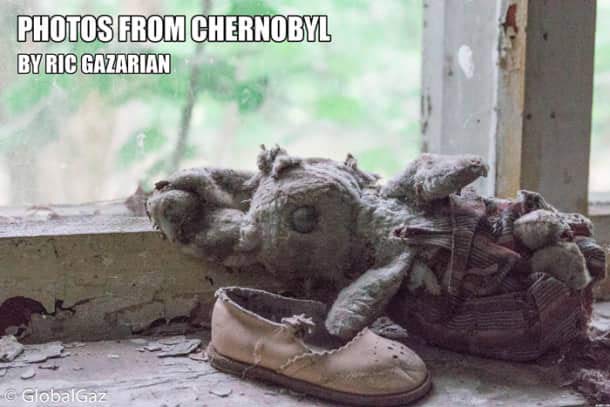
Photos From Chernobyl
Sign up to receive your free copy of Photos From Chernobyl. Over 100 photos from the Chernobyl Exclusion Zone.

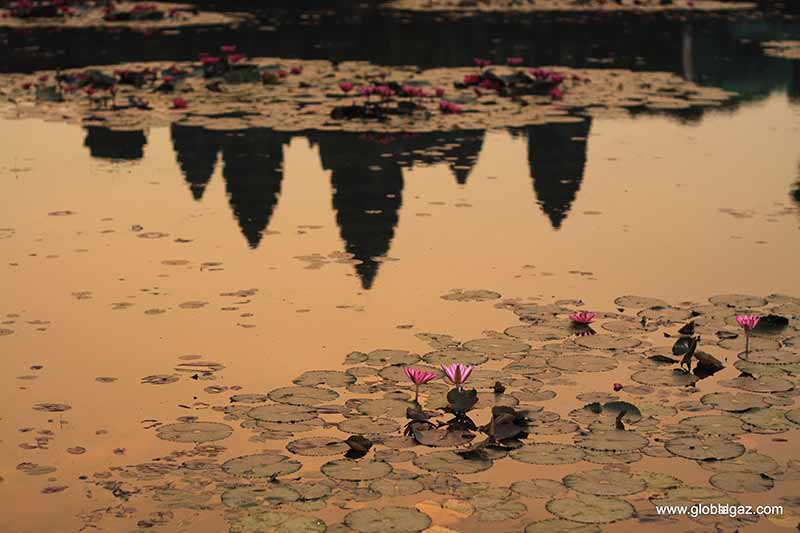














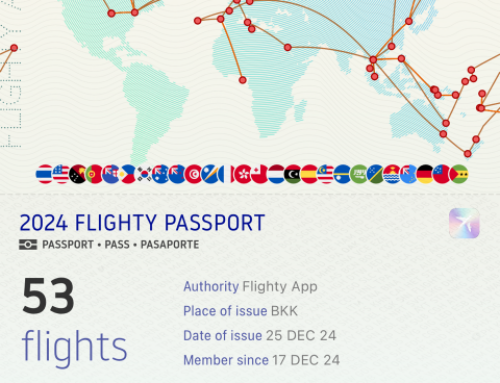
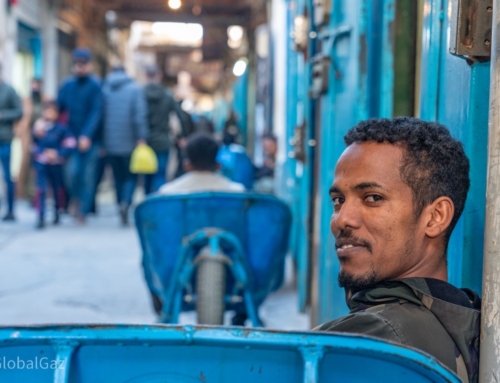
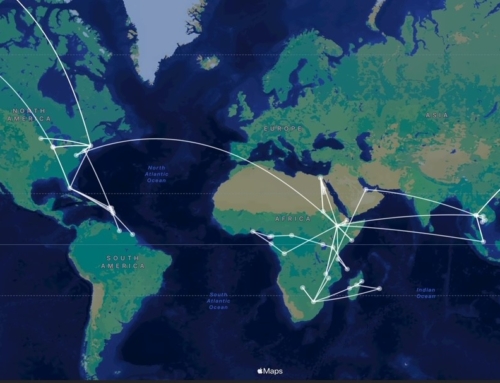
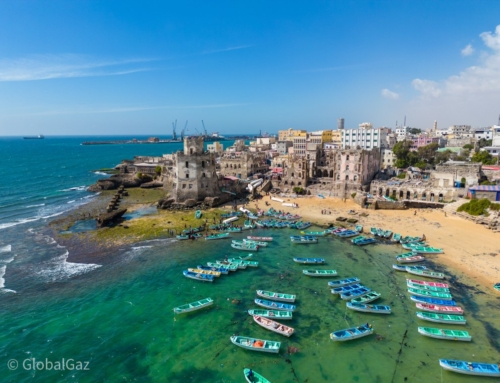
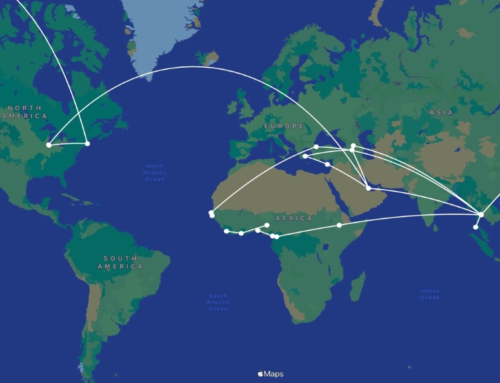
Leave A Comment